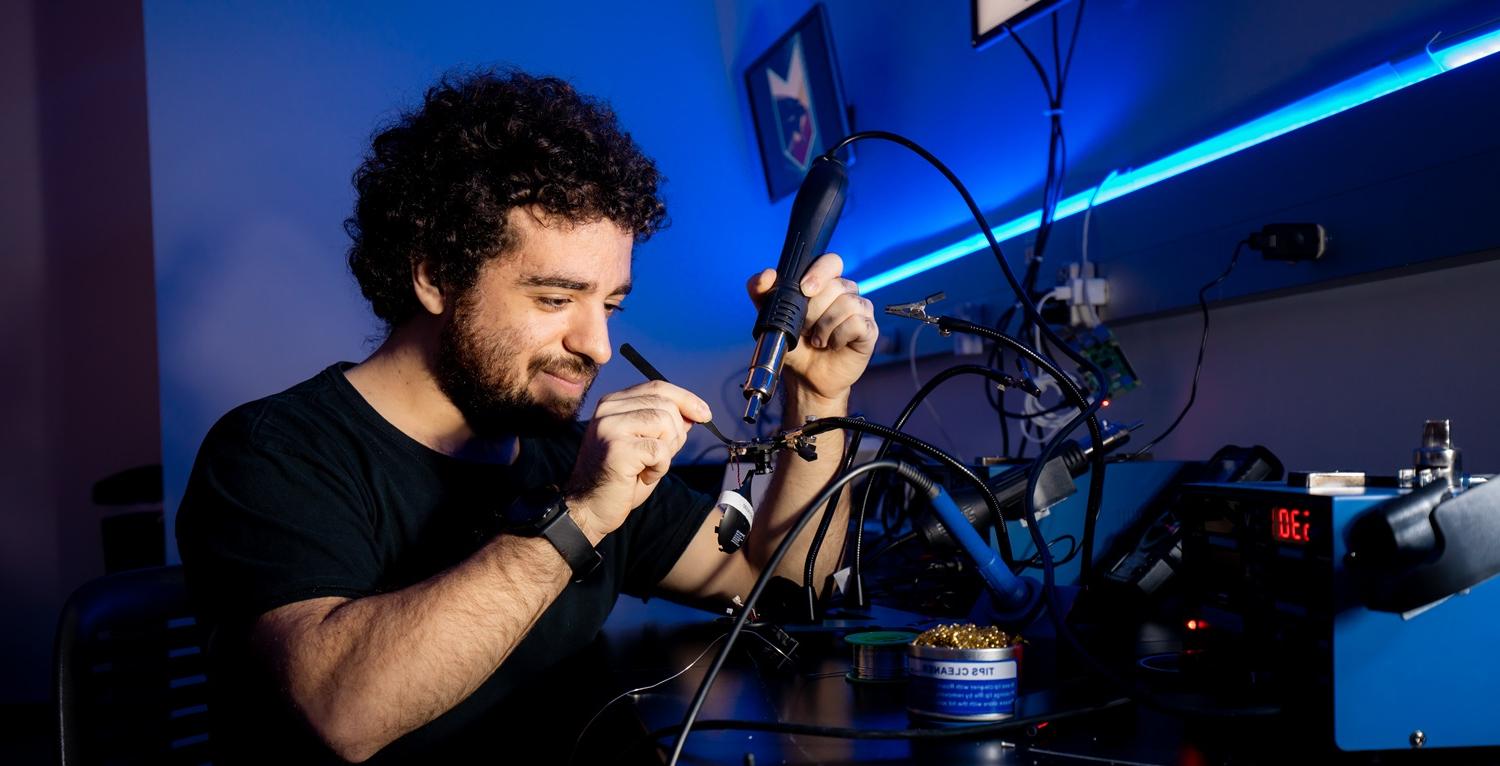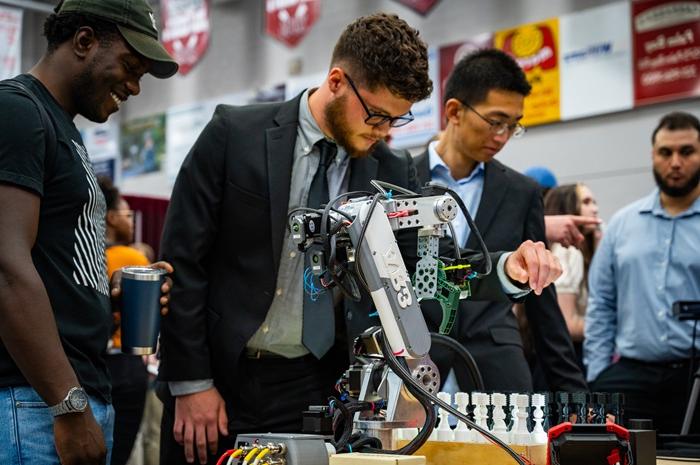Student Organizations: Connect with the Industry & Each Other
Earning your bachelor’s in electrical engineering involves more than classroom learning. You can also make friends, meet industry professionals, attend conferences and even participate in national design competitions through an array of campus organizations.
Among Florida Tech’s 200-plus clubs and honor societies are a few that might particularly interest electrical engineer majors, including:
- Institute for Electrical and Electronics Engineers (IEEE), our student chapter
- Society of Women Engineers
- Tau Beta Pi (engineering honor society)


 Give to Florida Tech
Give to Florida Tech 



